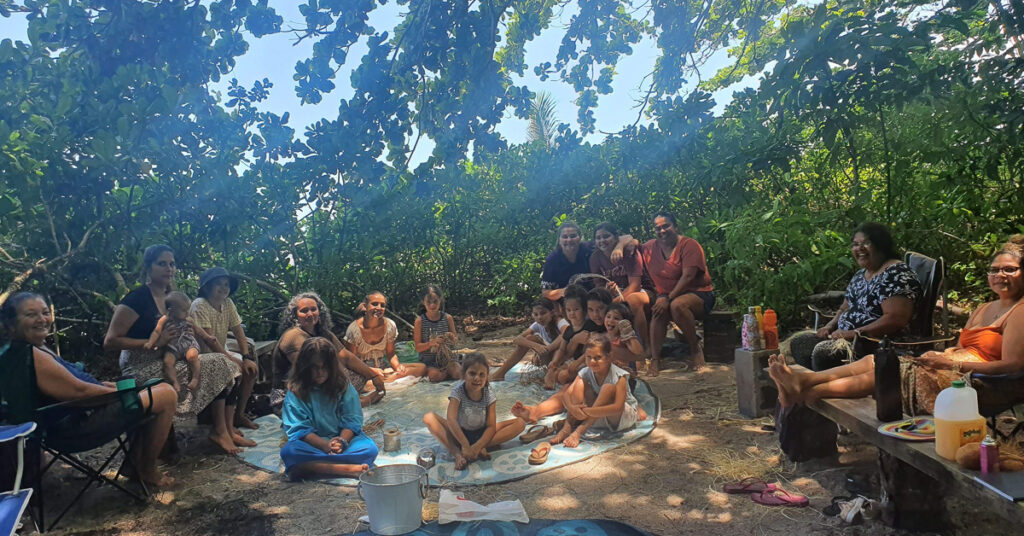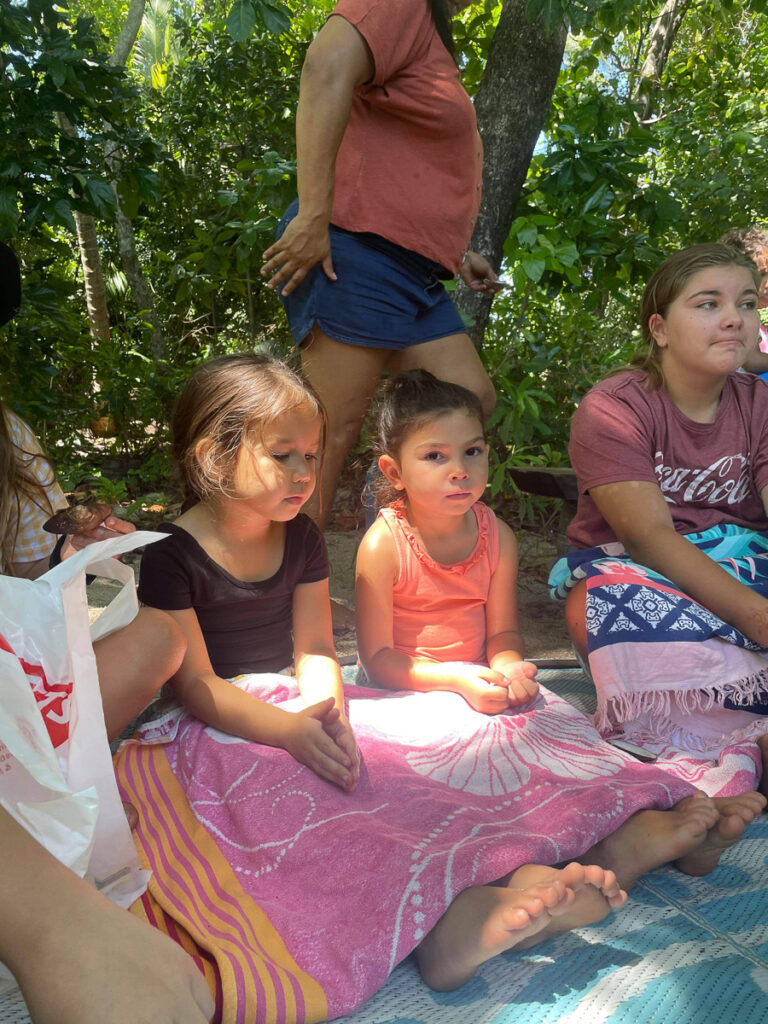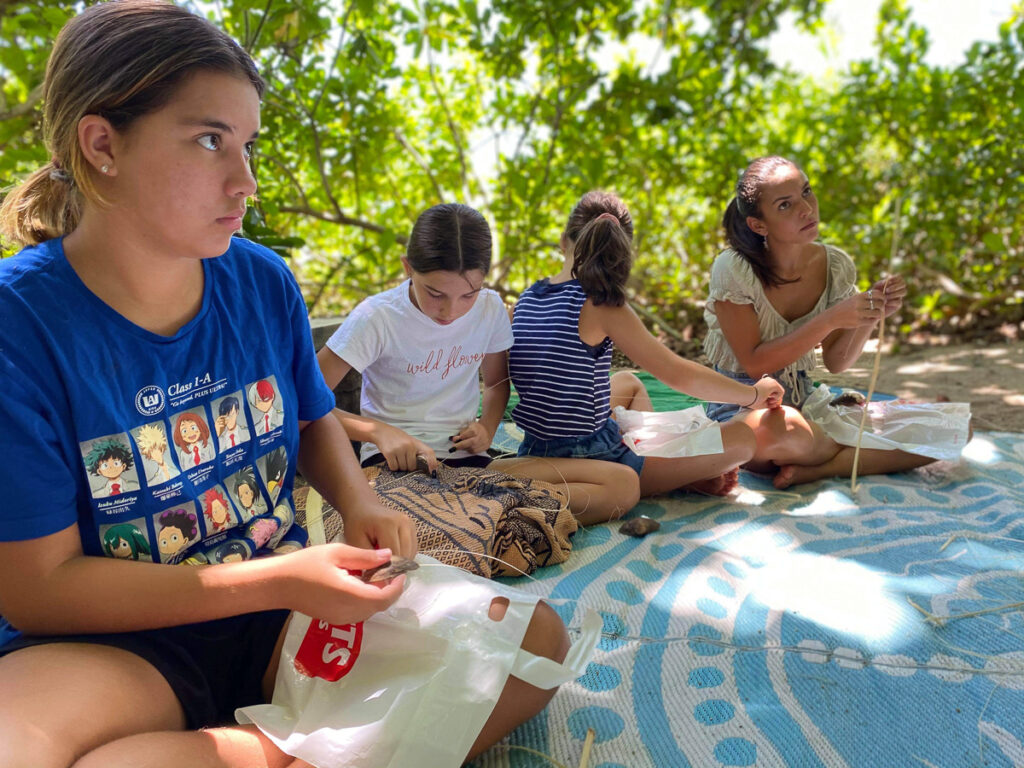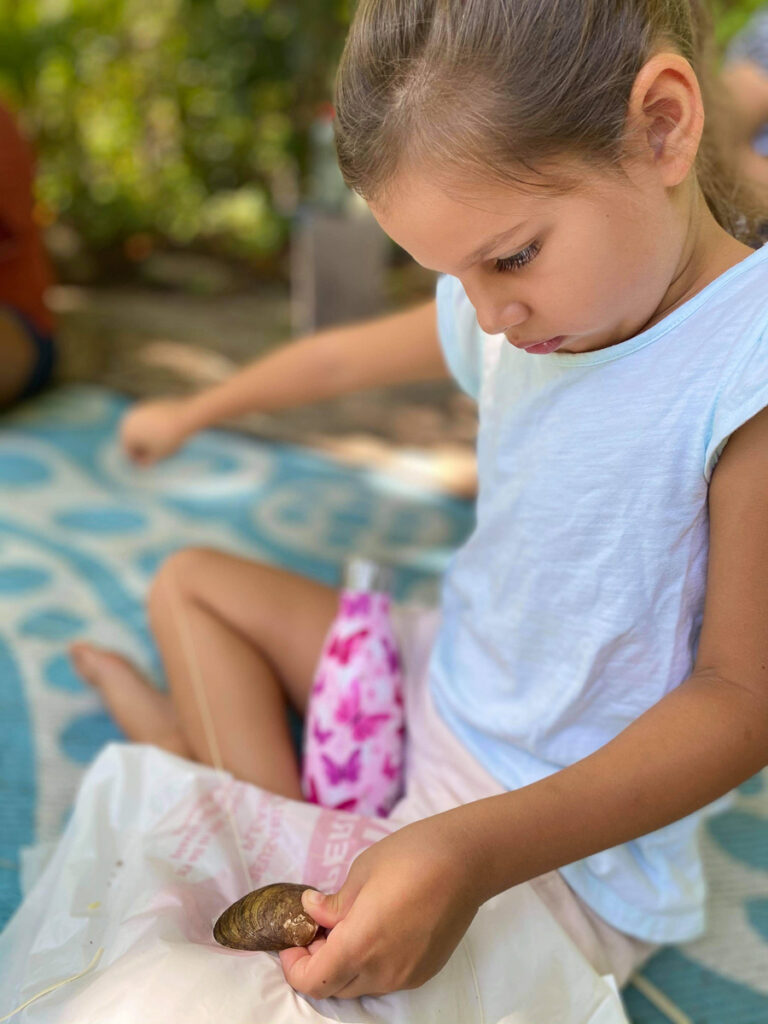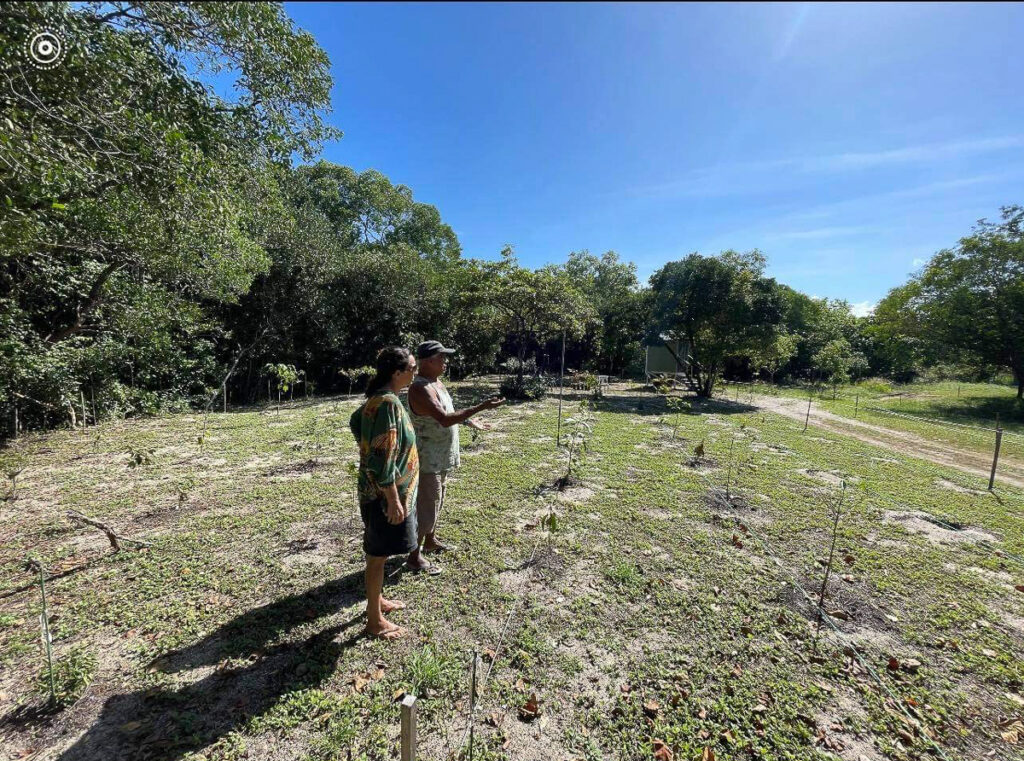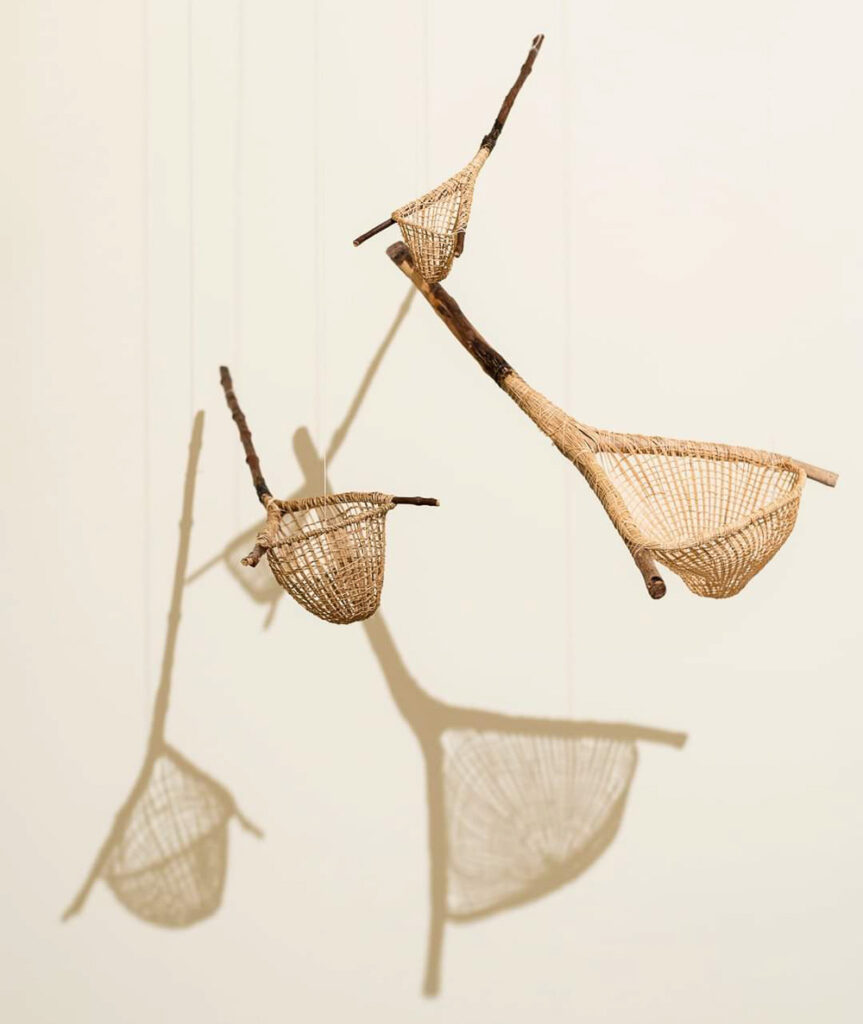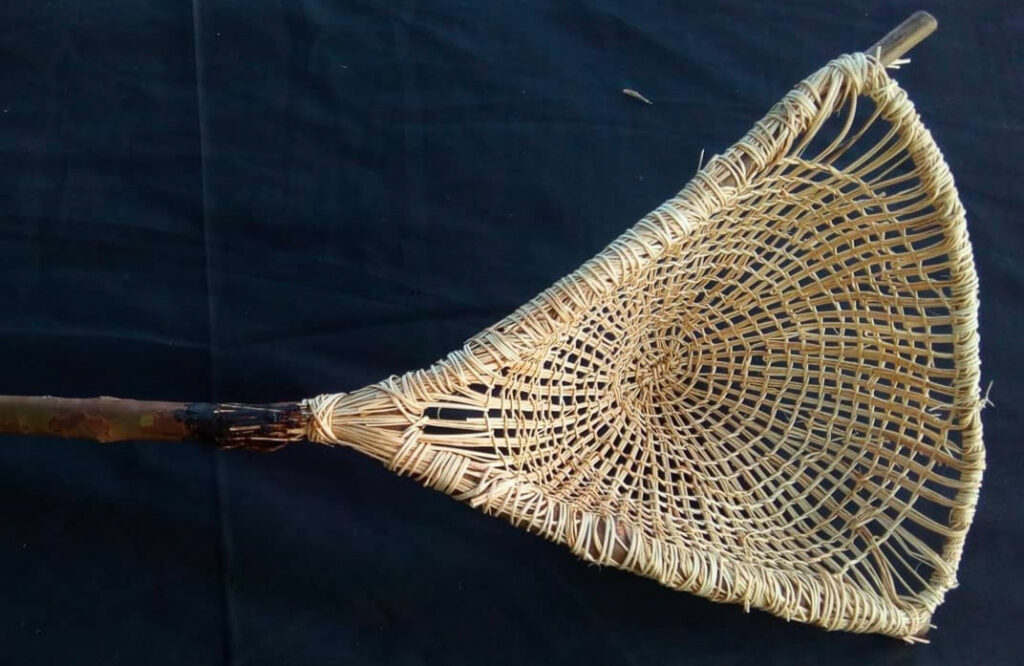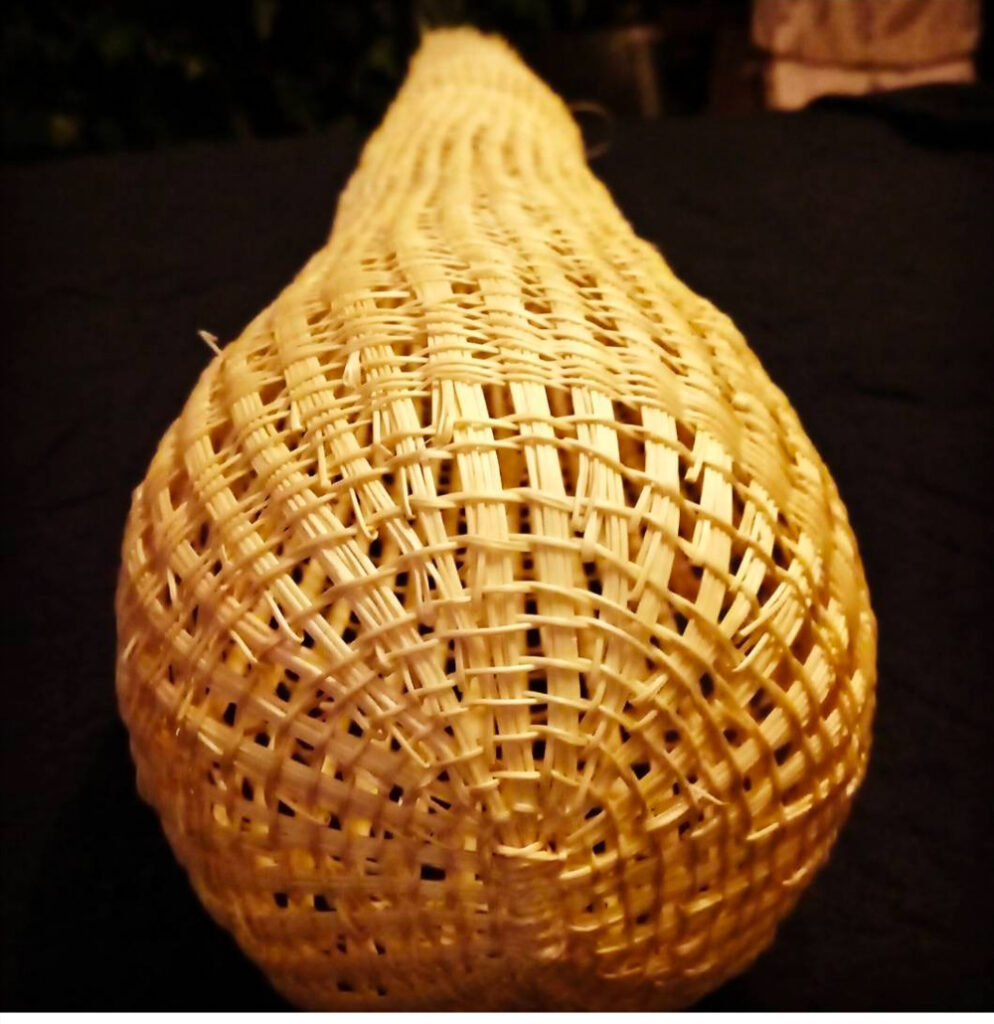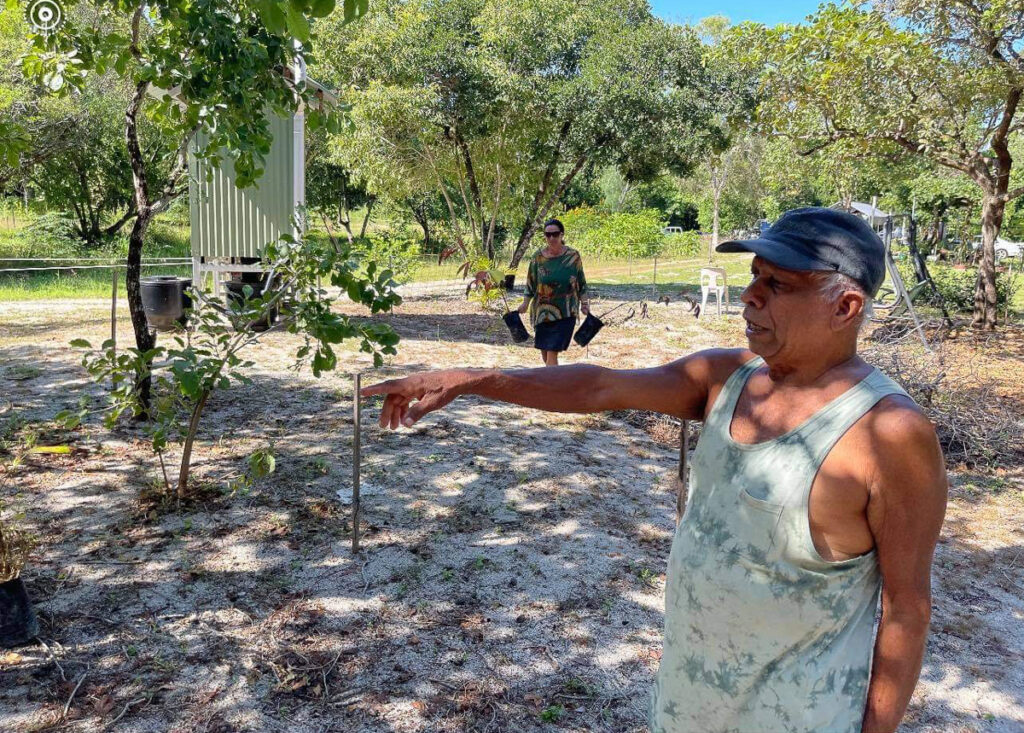
Delissa Walker talks about the land her uncle reclaimed where she brings female relatives together to weave stories.
✿ Can you describe your uncle and his vision for the land?
Uncle Bennett is the eldest of all Nana’s twelve children. He is a respected elder in the Kuku Yalanji community and whenever I have questions or need advice I often turn to him. To me, Uncle is one of the most knowledgeable persons I know. His knowledge about our kinship/family lines, culture and country is vast. There are few elders in our community that we can turn to for this advice and knowledge.
Over the last couple of years, I’ve visited my Uncle and the family block he has been working on at Cooya Beach (Kuyu Kuyu). He and his family have been working tirelessly to vegetate and maintain the land with the support of other organisations such as Jabalbina and Kubirriwarra Yalanji Corporation It is truly a sight to see. Imagine a big field at the mouth of the river dedicated to traditional plants and spaces to make traditional tools and weaving workshops
✿ What do you do on that land?
I do weaving lessons. There are black palm trees I planted in Daintree that have now been transplanted on the block to create a space to do weaving lessons. This year I taught the women recruits from the Indigenous Navy Reserve. It was a whole day cultural program.
There is a Welcome to Country, followed by a tour of the property where they learn about all the different plants and their uses.
The property is made up of sections, including rows of plants for medicine, cultural tools and bush tucker.
The men made woomeras, while I do my weaving sessions with the women. They then walked out on the mudflats to go hunting with kuku yalanji cultural tours (uncle Bennett’s sons). They also participated in tree planting on the block at the end of their visit.
✿ Can you say something about the land where you presently live?
Cooya Beach (Kuyu Kuyu) is an important hunting ground for our people. The name means there are “many fish”. All year round you can catch fish there. Seafood is plentiful.
We also do a “Walker Womens’ weaving lessons” at Cooya Beach. This is a beautiful get together for all the nieces and aunties to sit around, tell stories and practice traditional basket weaving. This will be an ongoing get together for our family. It’s nice to see the young ones giving it a go but also the older Aunties relearning how to weave to keep that practice alive.
✿ Are you happy for people to use your baskets?
Yes it makes me very happy to see people use my baskets for many different things. I’m currently making dilly bags for a dilly bag dance that will be performed for the Cooktown festival.
✿ Are there any particular uses that you’ve found interesting?
I made a fire stick holder/carrier for a local man in Mossman who did a lot of bushwalking. The shape was long and skinny. I had a lot of fun creating that piece knowing it wasn’t just for display.
✿ Can you share a word in your language that you think is particularly meaningful?
Ngamu, it means mother. Recently becoming a mum again this word is very special to me. I’m lucky that with my weaving I can bring my children with me to work. No one blinks an eye. You will find at most of our cultural tours or lessons our children are with us. That is how we have always been as indigenous people working and teaching with our children by our side.
- Guppy catchers made from guava tree, native bees wax and Kakan
✿ Have you ever had to work out for yourself how a traditional object was made? What’s an example of that?
Many many times! When I started making dilly bags in my early 20’s I had to teach myself what kakan (black palm tree) is old enough to use, what lawyer cane to use for the handles and how to calve it carefully so it doesn’t snap. I had to learn how to collect and melt beeswax on the fire that I use on the dilly bags. These were all things I was too little to learn and my Nana didn’t let me use a pocket knife being so young. When she passed away I had to teach myself through memories of watching her. A lot of trial and error and emotions along the dilly bag making journey.
My cousin showed me a guppy catcher made by my Nana. I made one similar going on what it looked like.
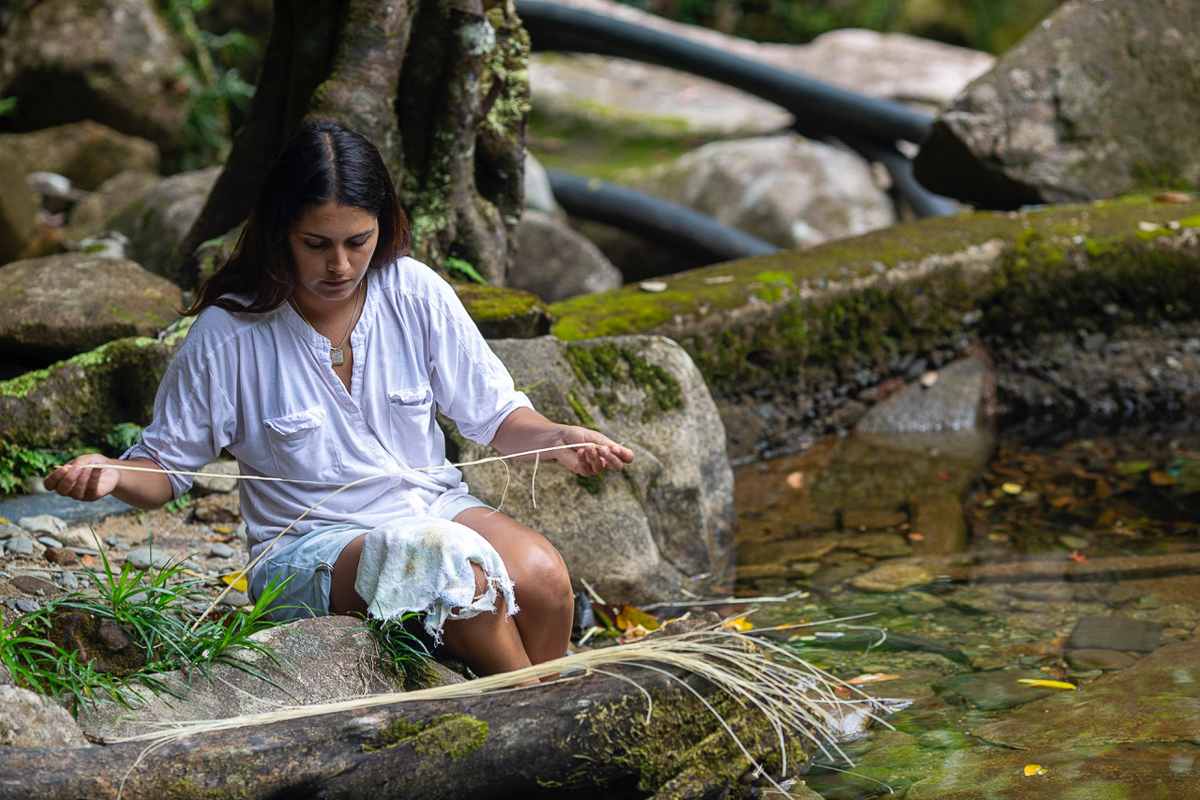
About Delissa Walker
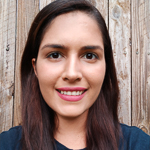 I currently live in Cairns North Queensland with my growing family. I grew up in Mossman with my grandmother and Daintree with my mother. This year has been quite exciting. We had filming down at Cooya beach for a Netflix series but unfortunately, I can’t release the supastars names involved just yet… it’s all pretty hush till 2022! I’m looking forward to being involved with the navy recruits again doing weaving lessons at the family block hopefully around July. -august. I will be also be weaving at the Laura festival, Cairns indigenous art fair and the Cooktown festival. Follow @delissawalkerartist
I currently live in Cairns North Queensland with my growing family. I grew up in Mossman with my grandmother and Daintree with my mother. This year has been quite exciting. We had filming down at Cooya beach for a Netflix series but unfortunately, I can’t release the supastars names involved just yet… it’s all pretty hush till 2022! I’m looking forward to being involved with the navy recruits again doing weaving lessons at the family block hopefully around July. -august. I will be also be weaving at the Laura festival, Cairns indigenous art fair and the Cooktown festival. Follow @delissawalkerartist

